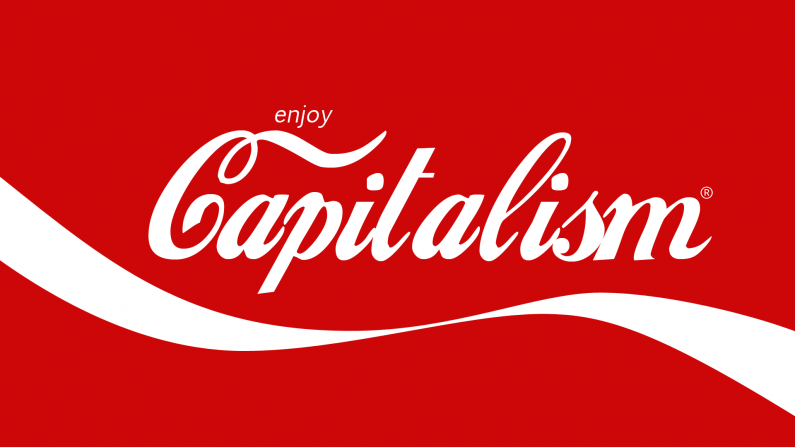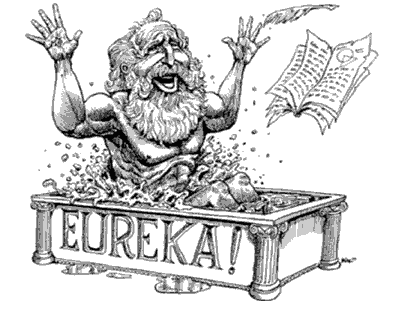
It’s been a largely debated topic in the 2016 presidential election. On one hand, we see amazing companies building phenomenal products we all use & love, the by-product of the American Dream… American Capitalism; production for profit, consumerism and the inherent right & freedom to have no limitations on your personal success or wealth. On the other, we see an oligarchic breed of global elite: the wealthy who use their personal talent for developing massively successful enterprises to hoard wealth, control of information & popular opinion. So, which way towards truth?
The objective of the article is to try to find this truth by attempting to present a logical prediction of Capitalism’s future through a brief analysis of the economic systems that lead to Capitalism and both pro and con support of it.
Capitalism can be defined simply as an economic system characterized by private ownership of the means of production and distribution, private property, voluntary exchange by individuals, and the prohibition of force, fraud or coercion.
Capitalism’s Origin: In a snapshot
American Capitalism as we see it today evolved from more primitive versions of economy used throughout history. As human intellect, technology, and just about all forms of useful innovation evolved, so did the systems that were produced from them.
So, let’s start there… in the opaque time in human history before written records, commonly known as pre-history. It was here where systems of trade, reward, and labor first came into existence and when we began to domesticate plants and animals, allowing for better control of tangible goods & assets… yielding more profitable “harvests”. This was the origin of what we now know as an economy.
Next, The Middle Ages (400 A.D.-1400) and good ol’ Feudalism: defined as a social system in which the nobility held lands handed to them from the Crown in exchange for military service and “vassals”(serfs, servants) who were tenants of the nobles. Peasants were obliged to live on their lord’s land and give him homage, labor, and a share of the produce, notionally in exchange for military protection.
Due to the nature of this systems interdependence, it saw a distinctive lack of pliability and ultimately failed. This stiffness, if you will, was most notable during The Black Plague (1346-53), in which a shortage of serfs who had died as a result of the plague forced nobles to seek out and train workers with the skills they needed and to pay them in currency rather than military protection, land rights, etc.
After about a century of transition, the 1500’s saw the emergence of Mercantilism. Mercantilism was basically a fraudulent economic system used by powerful colonial nations who sought to create trade imbalances favorable to themselves and in turn offered protection for creating these trade “opportunities.” A famous example of this was Great Britain and her colonies in America, in which England would take in raw materials from her colonies and sell back the finished products that Americans would use a pseudo-currency to pay for, effectively preventing America from trading with other countries and gaining economic independence.
One famous father figure in economic history, Scottish philosopher Adam Smith (1723-1790), saw the flaw in this system for its regressive nature in it actively preventing the world from advancing. From here he proposed the idea of a Free Market, in which we saw the emergence of Capitalism.
This proposal fit well with a concurrent mechanization of industry, known as the industrial revolution (1760-1840). This revolution saw the meeting of more efficient means of production with a surplus in labor, which was a major boon for advancement and created new money tycoons such as Andrew Carnegie and John D. Rockefeller. This shifted the previous old money paradigm that had dominated for centuries, seeing the opportunity to become wealthy without family privilege and inheritance now a reality.
Through the release of this chokehold old money had on the global economy, America saw the formation of a middle class as lower class folks earned increasing wages and opportunity through labor unions and free market competition.
The Pros & Support for Capitalistic Economy:
While not without controversy, here are some of the common arguments for a Capitalist economic system:
- Benefits to Society – Jobs in a Capitalist society exist and persist because they are beneficial. A job that holds no merit to society will soon be eliminated through a simple lack of demand and ensuing inability to become and remain profitable. A job with immense benefits to a society will flourish due to a consistency and sometimes even surplus of demand, thus creating profit for the business supplying this job. Companies at the top of an industry that have soaring profits can invest that money back into the economy, further bolstering growth.
- Equal Opportunity – One can find countless examples of folks coming from nothing and rising to the top. The idea is simple – hard work pays off; the harder you work the more you are rewarded. The only limit lies in your vision & ambition.
- Health and Wellness – Due to the free market system, a plethora of information and resources exist for citizens of a Capitalist society to optimize their health such as trainers, diet plans, Gov’t campaigns, nutritional information, and food variations such as organic, fat-free, free-range, etc. To some extent this is also true of Health Care (insurance plans/coverage).
- Human Nature – A major argument for Capitalism states that it’s a system apropos to Human Nature. It caters to our primal instinct of looking out for ourselves first and foremost, with altruism and sympathy coming second. While that may seem pretty negative, it works in a competitive market by making this instinct beneficial to others. As I mentioned before, a job with no merit to society will not persist, and the person invested in the job will lose the ability to take care of themselves or see it greatly challenged.
- Optimization – An example of this would be two similar products being sold by two different companies — only one of the companies will be able to be “more successful” and it will almost always be the company that offers the better product. This becomes the driving force for innovation and optimization.
- No Alternatives – Winston Churchill once said “Democracy is the worst form of Government, except for all the others.” The same can be stated for Capitalism, as numerous other forms of economic systems have tried and failed over the years. The common understanding is that because of Capitalism’s persistence, it’s the only option that works.
- Flexibility – Capitalism is a working system that can be applied to many different socio-economic situations. That being said, any country with a labor force, consumers, and adequate security can adopt the system.
Next: The Problems, Cons, and Criticisms of Capitalism.
- Mechanical Approach to Mother Nature – Capitalism, at its core, seeks to create and fill demand. Purely speaking, this is often without regard for the environmental sustainability of the product or the industry that produces it. While this is changing as more and more folks are becoming aware of the environmental effects of the current paradigm, it is still a major issue. America, for example, consumes exorbitantly more than any other country largely due to the near endless supply of goods and services we have grown accustomed to. This in turn produces massive amounts of waste. We have gotten so good at fulfilling our needs that it is no longer a problem of not enough, but rather a problem of too much. In short, nature is about balance and we have tipped the scale in our favor much too far.
- Money is Power – Money (an inherently artificial product, more so than ever in the modern era) is power in Capitalism. The more of it you have, the more influence you can have of your choosing. A point I stated before in favor of Capitalism was the death of old money dominance through the prevalence of equal opportunity and new money. However, many say the idea of equal opportunity has become a guise and our Democratic government is simply a “stage” for mega capitalistic power-sources to pull the strings behind.
- Free Market is Not Really Free – A Free Market is defined as an economic system in which prices are determined by unrestricted competition between privately owned businesses. In theory this sounds pretty good… but in reality this is often idealistic. There are often many restrictions… and I don’t mean from the Government. The very nature of Capitalism does not allow for a truly free market because the peak of success in business is market dominance – you don’t stop climbing up and pushing the competition down until you reach this peak, or the Gov’t steps in to stop you. As a result of this, some businesses have become quite devious in their strategies – from slander and propaganda to outright deception.
- Society – Capitalism is the system that has allowed for America to become so abundantly wealthy. This is a notion that is hard to refute. It’s fair to say that resulting from this much of modern society in America is built around consumerism, innovation and therefore Capitalism. How does this play out? To quote one of the greatest minds in human history, “I fear the day technology will surpass our human interaction. The world will have a generation of idiots.” – Albert Einstein. This is chillingly prevalent today. We are becoming absorbed by consumerism in many ways and it seems pretty clear that it is eroding the very fabric of American intellect.
So, where to next? The Synthesis / Semi-Solution
The current direction of Capitalism is fairly obvious, at least ostensibly. An increasingly financially flush upper class minority, a diminishing middle class and a growing and increasingly stagnant lower class. This lower class becomes increasingly dependent on government assistance and therefore a growth in government is eventually needed to sustain society. A lack of this government assistance runs the risk of increased homelessness, hunger, poverty and eventually an unsustainable lower class and potential chaos.
In truth, to attempt to offer a true solution to America’s economic systemic problems within only a short article would be incredibly presumptuous. This is a gigantically complex predicament. The purpose has been to get the reader to think outside of the box, acknowledge the assets & shortcomings of each system and then consider the first steps to a new solution. The one thing that is blatantly clear is that we are dealing with a serious problem and THE SOLUTION is in neither system, by itself. We can’t to resort to total Socialism: a system that has repeatedly tried and failed at every attempt throughout history. This system ensures the decimation of America’s middle class. It’s also not to continue down the same path we’re currently on, a synthetically driven form of Casino Capitalism driven by the wealthy, which is leading to ultra wealthy capitalists controlling more and more. We need a new economic system that encourages performance based production but truly lends itself to the entire population and thus restores a chance at true middle class prosperity.
As a contributor to this article – I feel compelled to finish with this:
In terms of big business, I do not view corporations as people and as such do not see them nor the free market as being the great equalizer that the right sees it as (I personally lean a little left). I do not think, based upon my own discovery, that less govt is the solution to wealth disparity and ultimately releasing the chokehold the elite (or whatever you might call it) has on our lives. Their power is in their money.
I’m young and perhaps under-educated (I wasn’t a very studious kid), but I feel a sense of social responsibility that compels me to involve myself politically and do so in an open-minded manner. The point of this article is not to necessarily come to a conclusion: but to show that in order to find answers we must objectively explore the merits & degradation’s of both sides of an argument… and move forward bravely.
Best,
Samuel Rudd




